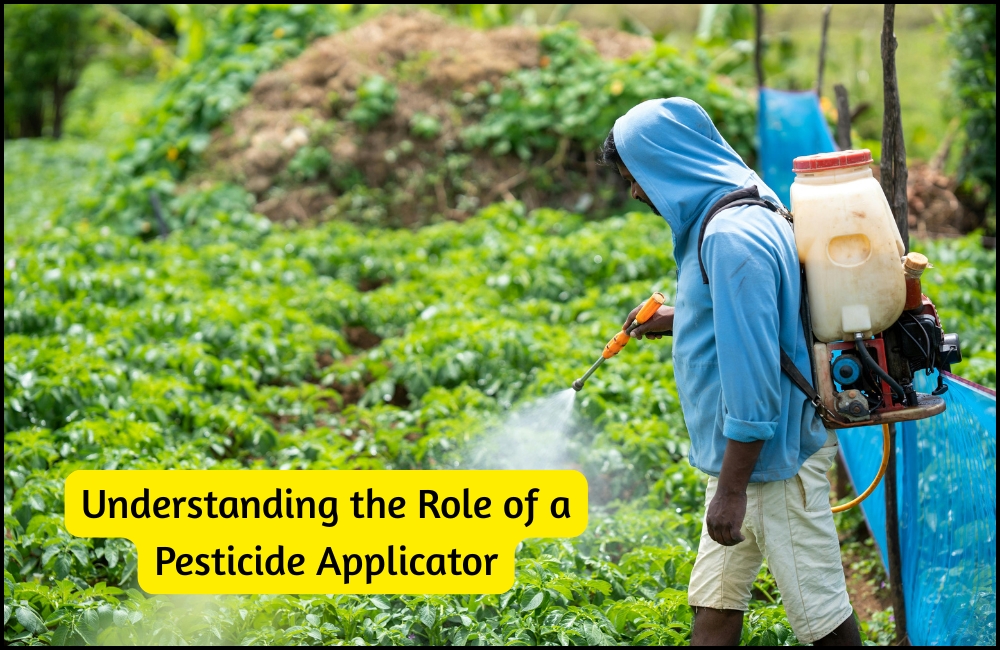Becoming a certified pesticide applicator is a significant step in ensuring safe and effective pest management. One of the best ways to prepare for the certification exam is by taking a pesticide applicator practice test. In this article, we will explore what these practice tests are, why they are important, and how to prepare for them effectively.
What is a Pesticide Applicator Practice Test?
A pesticide applicator practice test is a simulation of the actual certification exam designed for individuals seeking to become certified pesticide applicators. These tests typically consist of multiple-choice questions covering a variety of essential topics, including:
-
Types of Pesticides: Understanding the various categories of pesticides, such as herbicides, insecticides, and fungicides, is crucial. Each type has specific uses and application methods.
-
Safety Practices: Pesticide applicators must prioritize safety. Questions may cover personal protective equipment (PPE), first aid measures, and how to handle spills or accidents.
-
Application Techniques: Proper techniques for applying pesticides can significantly affect effectiveness and safety. Topics may include calibration of equipment, application methods, and timing.
-
Environmental Protection: Understanding how to minimize the impact of pesticide use on the environment is vital. Questions often address regulations regarding runoff, groundwater protection, and non-target species.
-
Legal Regulations: Familiarity with local, state, and federal regulations governing pesticide application is essential for compliance and safety. Questions might cover licensing requirements, reporting obligations, and prohibited practices.
Why is the Practice Test Important?
-
Boosts Confidence: A practice test helps you become comfortable with the exam format and types of questions you may encounter. This familiarity can reduce anxiety and enhance your performance on the actual exam.
-
Identifies Knowledge Gaps: Taking a practice test allows you to pinpoint specific areas where your knowledge may be lacking. By identifying these gaps, you can focus your study efforts more effectively.
-
Improves Retention: The act of answering questions helps reinforce your knowledge. Repetition is a key component of effective learning, and practice tests can aid in committing important information to memory.
-
Familiarizes You with Regulations: Questions related to regulations can help you understand the legal landscape of pesticide application. This knowledge is crucial for operating within the law and ensuring public safety.
-
Encourages Effective Study Habits: Regularly taking practice tests encourages consistent study habits. You’ll find that your preparation becomes more structured and goal-oriented.
How to Prepare for the Practice Test
-
Study the Core Material: Begin your preparation by reviewing your study materials thoroughly. Focus on essential topics like pesticide classifications, safety protocols, application techniques, and environmental regulations. Utilize textbooks, online resources, and official guidelines from regulatory agencies.
-
Take Multiple Practice Tests: Don’t limit yourself to just one practice test. Use various resources to take multiple tests, exposing yourself to a wider range of questions and topics. This diversity can enhance your understanding and preparedness.
-
Review Your Answers: After completing a practice test, take the time to review your answers. Analyze why you answered certain questions incorrectly. Understanding the reasoning behind each question can deepen your knowledge and improve future performance.
-
Join Study Groups: Collaborating with peers can provide additional insights and motivation. Study groups allow you to discuss challenging topics, share resources, and quiz each other. Engaging with others can make studying more enjoyable and effective.
-
Utilize Online Resources: Many websites offer free or low-cost practice tests and study materials. Look for reputable sites that provide updated information aligned with current regulations and practices. Online forums and communities can also be valuable for tips and resources.
-
Schedule Regular Study Sessions: Create a study schedule that allows for consistent review of material. Breaking your study sessions into manageable chunks can help prevent burnout and promote better retention of information.
-
Practice Time Management: During your practice tests, pay attention to how long it takes you to answer questions. Developing good time management skills will be beneficial on the actual exam, ensuring you have enough time to answer all questions.
Where to Find Pesticide Applicator Practice Tests
You can find pesticide applicator practice tests through various sources:
-
Online Platforms: Many educational websites and certification preparation companies offer free or paid practice tests. Look for those that provide detailed explanations for answers to enhance your learning.
-
Local Agricultural Extension Offices: Many state agricultural extension services provide resources for aspiring pesticide applicators, including practice tests and study materials.
-
University Programs: Some universities offer certification programs for pesticide applicators and may provide practice exams as part of their curriculum.
-
Textbooks and Study Guides: Many study guides specifically designed for pesticide certification include practice questions and tests at the end of each chapter.
Conclusion
A pesticide applicator practice test is an invaluable tool for anyone preparing for certification. It enhances your knowledge, boosts your confidence, and increases your chances of passing the exam. By studying thoroughly, taking multiple practice tests, and reviewing your answers, you can ensure that you are fully prepared for the challenges ahead.
Investing time in practice tests will not only help you pass your certification exam but also equip you with the knowledge needed to apply pesticides safely and effectively. Embrace this preparation process, and you’ll be well on your way to becoming a certified pesticide applicator!
Media Contact
Company Name: pesticideprep
Contact Person: John
Email: Send Email
Phone: 01877448297
City: Cumilla
Country: Syria
Website: https://pesticideprep.com/

